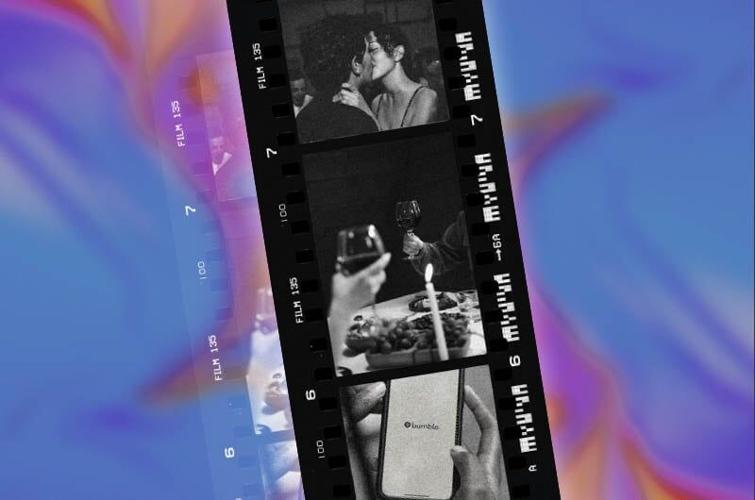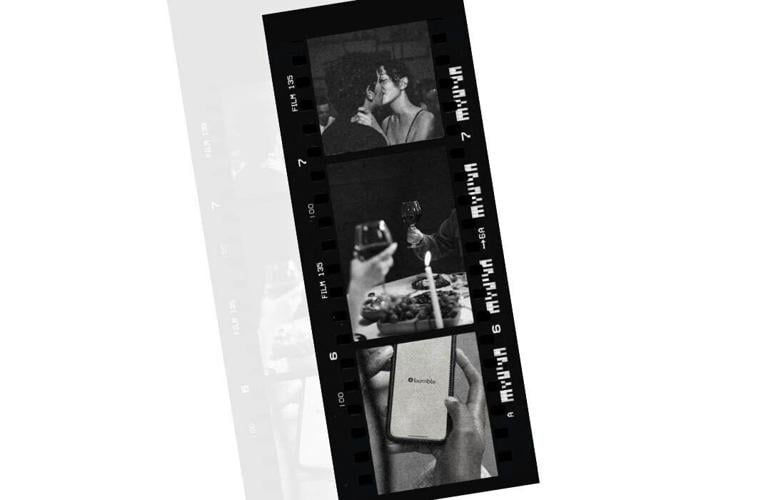What does your love life hold in the year ahead? For your personalized forecast, call our $250 per second hotline at 1-800-NOT-REAL to speak to one of our paper fortune teller readers. (ThatŌĆÖs a joke, to be clear, not unlike the unfunny farce that modern dating can sometimes feel like.)
For actual trends in how people will be looking for The One, or just a bit of fun, in the year to come, we tapped dating experts for their grounded-in-truth prognostications on what will shape the love landscape in 2024. Their crystal balls foretell some fascinating shifts in not just how but why weŌĆÖll be dating in the year to come.
1. Back to the basics
Remember all those stories of how people in your parentsŌĆÖ generation met at the roller skating rink or at an ice-cream social in a church basement? Well, itŌĆÖs predicted that daters of a younger vintage will embrace this retro way of meeting potential love interests.
ŌĆ£There is definitely a return to the basics, meaning [meeting] organically through shared interests or groups, as well as revisiting their existing network of friends and acquaintances for introductions or connections,ŌĆØ says Chantal Landreville, a certified love and relationship coach whose book, “Raise Your Love Signal: A Guide to Attracting and Keeping the Love of Your Life” is out on ValentineŌĆÖs Day. Her tip, if you want to get in on this: ŌĆ£Embrace the possibility of meeting people naturally in any setting by being observant and open, exchanging smiles instead of being so absorbed in phones.ŌĆØ
2. The high-school-crush revival
Another offline dating trend is growing tendency to cast back in our pasts for the ones who got away. ŌĆ£Individuals are reaching out to past high school or college sweethearts, and surprisingly, there are many success stories,ŌĆØ Landreville says. ŌĆ£Considering the significant changes and personal growth that occur over 20 to 30 years, some may be newly separated or have experienced transformative life events. Reconnecting with old connections is proving worthwhile, as timing appears to be a crucial factor in these scenarios.ŌĆØ Time to dust off that yearbook?
3. Relationship definitions blur
ŌĆ£NATOŌĆØ dating ŌĆö as in, ŌĆ£not attached to the outcomeŌĆØ ŌĆö has come to the fore, according to TinderŌĆÖs 2023 year-end trend report. ŌĆ£Instead of rushing into a ŌĆśhappily ever after,ŌĆÖ theyŌĆÖre focusing on using the dating journey to accumulate a roster of new experiences and memories that enhance their personal stories,ŌĆØ says Paul C. Brunson, TinderŌĆÖs global relationship insights expert. Bad date, good date, getting ghosted: ItŌĆÖs all fodder for the memoir.
Fretting over those old relationship definition binaries is also out, and embracing intentional ambiguity is in. ŌĆ£Historically, relationships have very distinctly fallen into categories. YouŌĆÖre either friends, or youŌĆÖre romantically involved,ŌĆØ says Julie Schwartz, co-founder of the ŌĆ£feel good chat appŌĆØ Phori, which is an AI-enhanced service that lets you search for a relationship, a friendship or something in between. ŌĆ£Instead of centring the app around the pressure of finding someone who fits neatly into a box for you, users come with no ŌĆśseriousŌĆÖ agenda. [They] may be looking to banter, for advice, to flirt, to share a confession, or they may just be bored.ŌĆØ
4. Digital-first socializing
The rise in remote work and resulting loss of IRL connections has caused a seismic social shift thatŌĆÖs particularly impacting younger daters, many of whom came of age during the pandemic.
ŌĆ£The unintended consequences of remote work are that people socialize less in real life. Spontaneity, organic relationships and run-ins are almost untenable ŌĆö thereŌĆÖs a lot less ŌĆśletŌĆÖs grab a drink after workŌĆÖ or ŌĆśI met someone interesting in the elevator bankŌĆÖ when youŌĆÖre working from your couch in your pyjamas all day,ŌĆØ says Schwartz. ŌĆ£As a result, Gen Z has turned to online forums, dating and friendship apps, video games and other social media apps for connection, which has led to an abyss of options rooted in the superficiality of looks and likes.ŌĆØ
One consequence of this almost exclusively digital existence? ŌĆ£WeŌĆÖre seeing dating app burnout, especially amongst Gen Z and Millennials,ŌĆØ Schwartz says. ŌĆ£ThereŌĆÖs a paralysis of choice. When youŌĆÖre always in search of the next best thing, you tend to dismiss any ŌĆśredŌĆÖ or ŌĆśbeigeŌĆÖ flags from the get-go, searching for someone who is seemingly ŌĆśperfect.ŌĆÖŌĆØ
5. Mental health takes precedence
The emotional toll of online dating ŌĆö the matches that donŌĆÖt reply back, the ones you chat with fruitlessly for a year, the ones you do meet IRL but then ghost you ŌĆö is seeing many daters scale back their efforts or stop altogether.
This has been coined ŌĆ£considered dating,ŌĆØ says BumbleŌĆÖs sex and relationship expert Shan Boodram. ŌĆ£More than half of singles are more open about their mental health, and theyŌĆÖre making a concerted effort to slow down,ŌĆØ she says. ŌĆ£People are seeing dating as an extension of their mental health practices.ŌĆØ
This also means people are more likely to extend grace to someone who cancels a date because theyŌĆÖre having a bad mental-health day of their own, she says. ŌĆ£Considered dating is not just acknowledging our own needs in dating, but extending that to other people.ŌĆØ
6. Money talk
ThereŌĆÖs an overall focus on ŌĆ£honesty and clarityŌĆØ in relationships, says Boodram, whether youŌĆÖre doing roster dating (seeing multiple people at once) or dating exclusively to find a long-term partner.
Part of that is ŌĆ£cash candidness,ŌĆØ a growing movement toward financial transparency in dating, particularly stating expectations about how extravagant (or not) dates should be. ŌĆ£People are being upfront about what they can do, and what they want to do,ŌĆØ says Boodram. ŌĆ£These are healthy conversations about where we draw the line between being frugal, and not even giving a person the opportunity to enjoy themselves.ŌĆØ A grand gesture that the other person didnŌĆÖt realize was a huge splurge for you? Not in this economy!
Brunson also thinks the current economic climate will shape dating this year. ŌĆ£With higher prices for everyday needs, we expect that people will be more intentional with where they spend their time and money,ŌĆØ he says. ŌĆ£Young daters will lean into the ŌĆśjoy economy, looking for special experiences that bring happiness in an uncertain future.ŌĆØ Think: more free dates like walks combined with the odd concert or event.
7. Coming as you are
ŌĆ£WeŌĆÖre just tired of having to be skinnier, prettier, smarter, more woke,ŌĆØ says Boodram, articulating a trend dubbed ŌĆ£Betterment Burnout.ŌĆØ While personal growth is great, she continues, thereŌĆÖs a point where you need a break from trying to be better than before. ŌĆ£With that comes acceptance for people not to be their ŌĆśafter,ŌĆÖ whatever that is.ŌĆØ
8. Less focus on milestones
ŌĆ£ThereŌĆÖs something really wonderful happening called the ŌĆśtimeline decline,ŌĆÖŌĆØ says Boodram. An increasing number of people, women in particular, are letting go of the tired scripts that say you need to be married by a certain age ŌĆö or at all. ŌĆ£Every generation prior to ours was on whatŌĆÖs called the ŌĆśrelationship escalator,ŌĆÖ and it moved so much quicker,ŌĆØ she says. ŌĆ£Not only are they slowing it down, theyŌĆÖre getting off it altogether. ItŌĆÖs just not that meaningful for them to couple up for the sake of coupling up.ŌĆØ
╠²






























To join the conversation set a first and last name in your user profile.
Sign in or register for free to join the Conversation